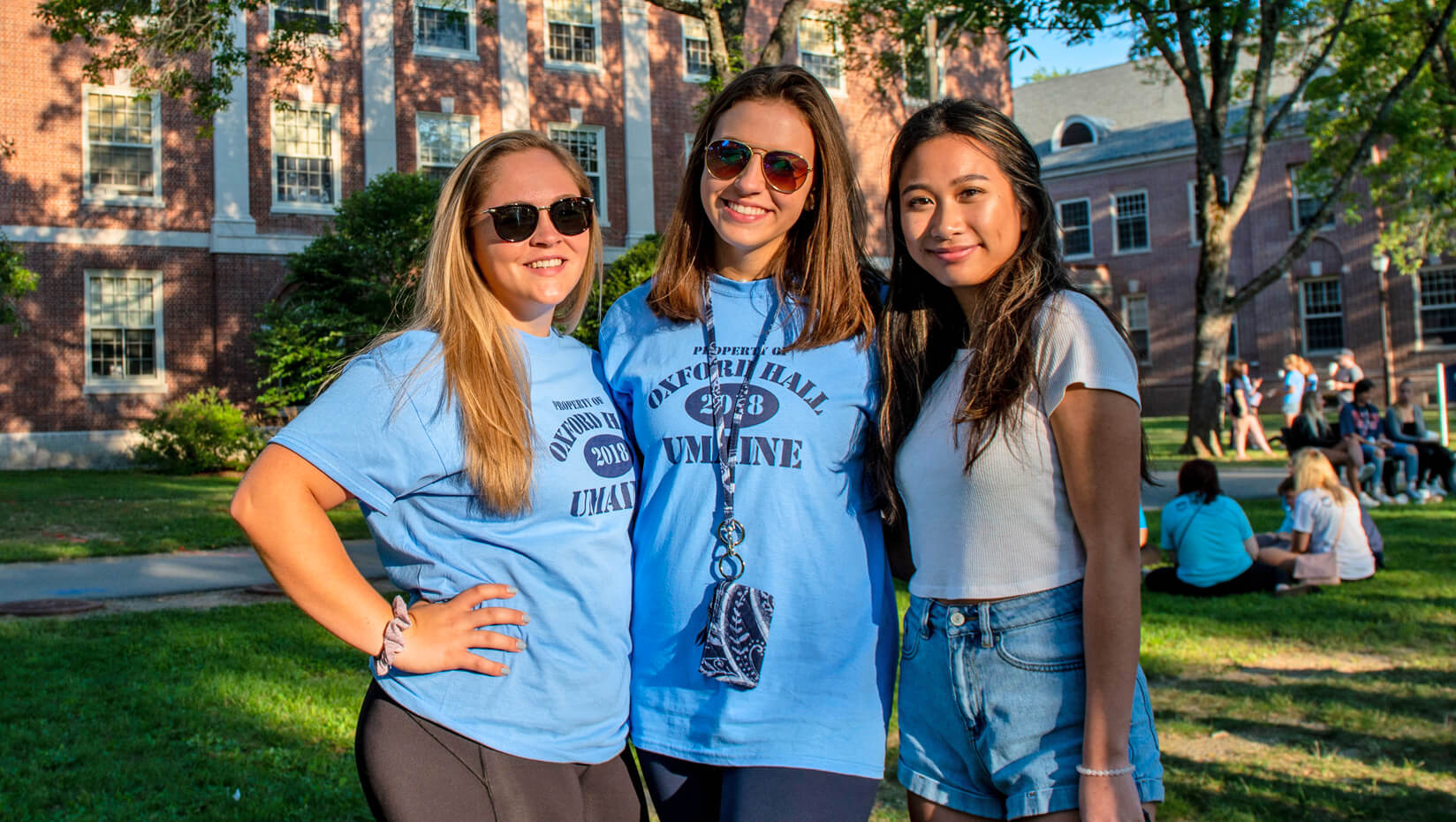
UMaine again welcomes one of its largest incoming classes
A first-year class of at least 2,230 students moved in during this year’s Welcome Weekend with the help of more than 700 volunteers from the University of Maine community. The first-year students again make up one of the largest classes in UMaine history, and over 46 percent of them are from other states.
This fall, 381 international students are enrolled at UMaine, including 48 first-year or transfer students, and 38 new master’s or doctoral candidates.
As of the start of the first week of classes, UMaine’s enrollment was 11,173 — 2 percent higher than enrollment on the same day last year. By the October census, overall enrollment is projected to exceed 11,300, which would be the highest enrollment since fall 2010.
Fall 2018 graduate enrollment is projected to exceed 2,000 for the first time since fall 2013, with projected increases in out-of-state and in-state enrollment. Much of the growth can be attributed to an increase in enrollment in online programs.
As of the first day of classes, 530 new graduate students had enrolled for courses — a 15 percent increase over the same day last year.
Enrollment in online programs is expected to reach almost 500 this fall, an increase of almost 30 percent.
Vice President for Enrollment Management R. Lizzie Wahab reflected on the start of the fall semester — her first since joining the UMaine community Aug. 1.
“Our students’ enthusiasm is palpable as they immerse themselves in the range of classes and activities that only a flagship school can offer,” she says. “We revel in this new level of energy to campus that, for many of us, is as thrilling now as it was during our own days as undergraduate and graduate students.
“We are proud to welcome a diverse, academically talented class in keeping with our mission,” Wahab says. “Thanks to the efforts of many, UMaine is matching the high standards of this class with a sharpened focus in educational excellence, the quality of our students’ experiences, and greater accessibility of our academic strengths to Mainers, both traditional and returning adults.”
